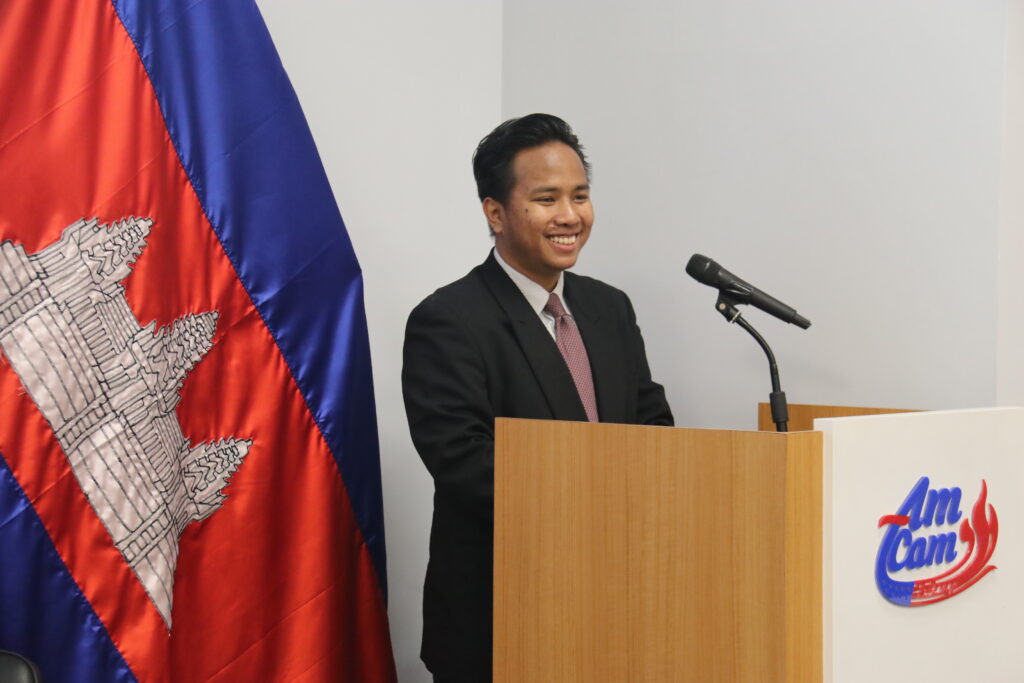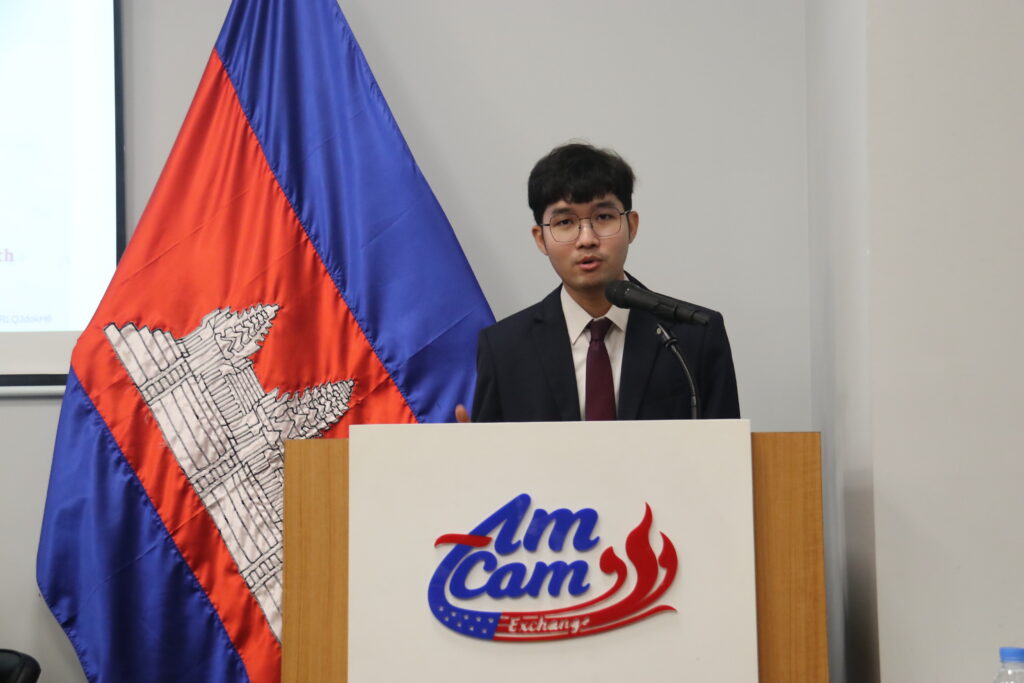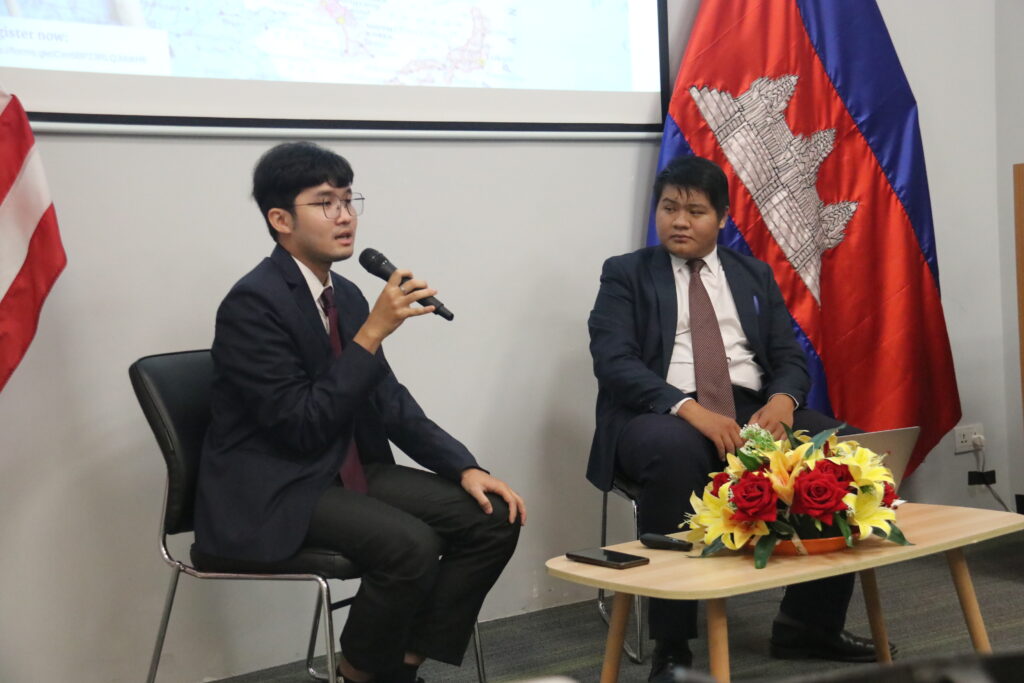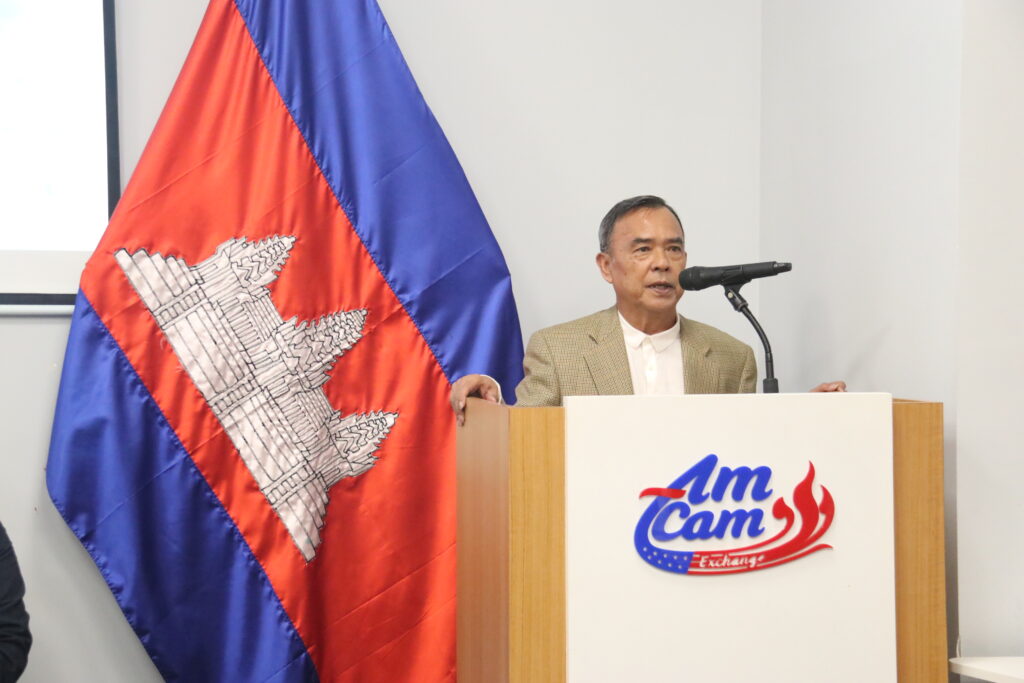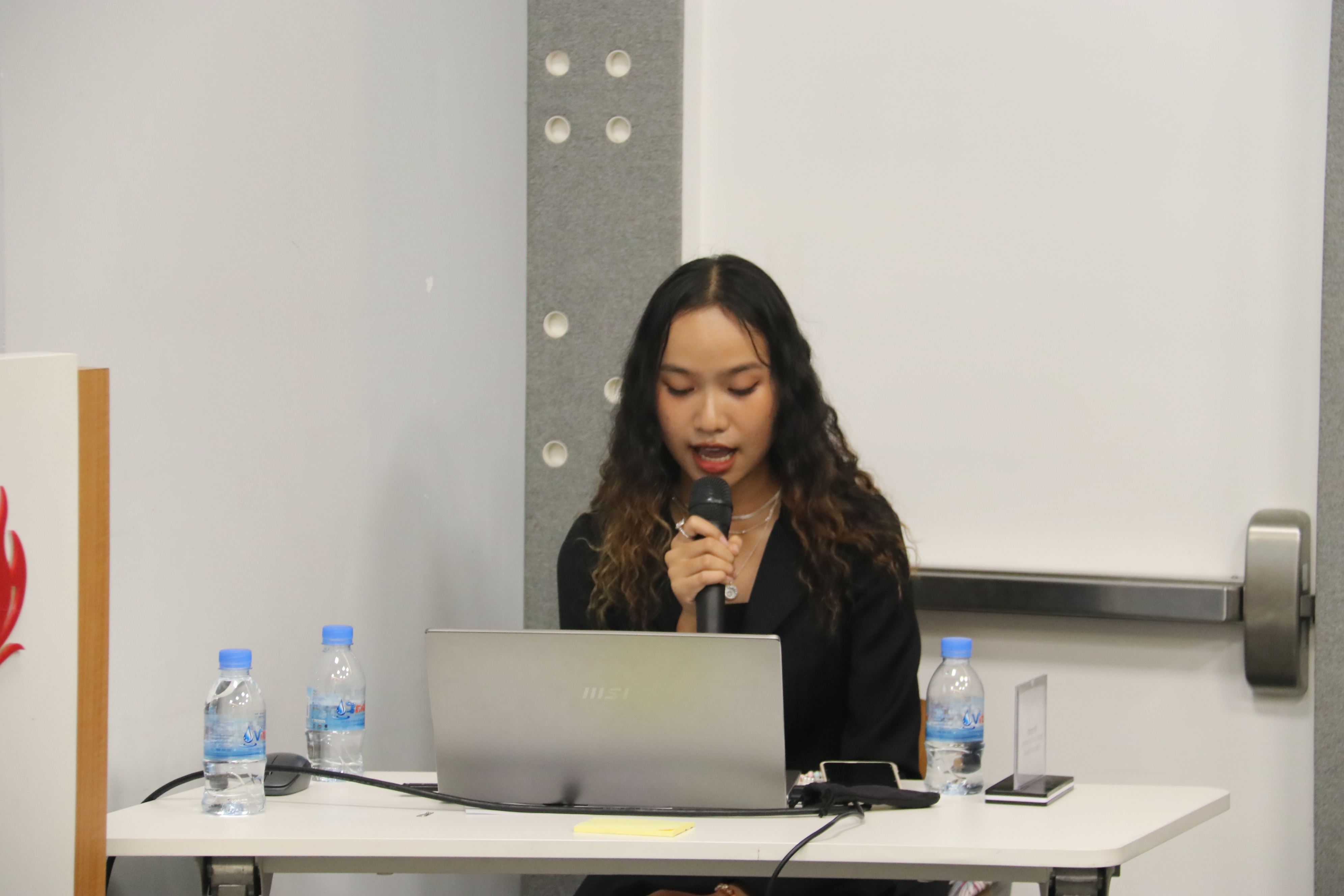On 19th January, CCRS organized a Public Lecture on “South Korea’s Contemporary Foreign Policy” by our Research Fellow, Mr. Ek Bunly with the keynote address by Mr. Na Sang-deok, Minister Counsellor of the Embassy of the Republic of Korea to Cambodia. There were around 50 participants, ranging from members of the diplomatic corps, academia, and members of the press.
During his opening remarks, our Executive Director, Mr. Him Raksmey welcomed the participants today and highlighted the objective of the lecture, which aimed to discuss changes and continuity of Korea’s contemporary foreign policy under President Yoon Suk Yeol’s Administration, and its implications on Southeast Asia and the five influential states such as the US, China, Japan, North Korea, and Russia, and briefly discuss why Southeast Asia is important for South Korea and vice versa.
The keynote address by the Minister Counsellor of the ROK Embassy to Cambodia, Mr. Na Sang-deok. His presentation focuses on contemporary South Korea’s foreign policy, which are the Indo-Pacific Strategy and the Korea-ASEAN Solidarity Initiative (KASI). Aspiring to become a pivotal state, Korea’s Indo-Pacific Strategy and KASI aim to make contributions to the international community. This aligned with the ROK’s story of nation-building, transforming from an ODA recipient country into an ODA donor country. On KASI, the ROK intend to broaden the scope of cooperation with ASEAN, from strategic engagements with ASEAN on regional issues to closely working with ASEAN on emerging areas, like digitalization, e-mobility, people-to-people and cultural exchanges. The ROK and ASEAN are expected to elevate its relationship to Comprehensive Strategic Partnership during this year when they celebrate the 35th anniversary of the dialogue relations this year.
Our guest speaker, Mr. Ek Bunly began his presentation on South Korea’s contemporary foreign policy. He did a comprehensive presentation, which covered briefing the history of the Korean Peninsula to the dynamics relations of domestic politics and foreign policy in South Korea. During his brief history, Mr. Ek summarized the ROK’s history into four phases: (1) Post-Korean War reconstruction (1953 – 1960s), which focused on the export-led industry and beefing up the alliance with the US; (2) Miracle on the Han River (1960s – 1990s), a period that ROK’s economy was boosted to 400 times and the emerging of private conglomerates; (3) Democratization and knowledge economy (1990s – 2000s), which saw the rise of democratization, globalization, and the cultural wave; and (4) the Modern South Korea (2010s – Present Day), the contemporary time that witnesses the rising of innovative technology, the increasing of aging population, and the complexity of geopolitics. He then highlighted that the domestic politics in South Korea also has some implications for its foreign policy as the competition between the two parties, the ruling People Power Party and the parliament-majority Democratic Party of Korea, is too fierce that could constrain its diplomacy.
Overall, Mr. Ek highlighted that in all administrations in South Korea, the country’s foreign policy has been surrounded by five influential actors, such as China, Japan, North Korea, Russia, and the US. On Yoon’s foreign policy, Mr. Ek stressed that under the current Indo-Pacific Strategy, South Korea aspired to become a global pivotal state, which aimed to diversify its relations with other countries beyond the five abovementioned states. He then postulated the ROK’s engagement with Southeast Asia, which is based on KASI. KASI has three visions: (1) Freedom; (2) Peace; (3) Prosperity. Then he assessed that with the aspiration of a global pivotal state, the global perception seemed to be positive towards South Korea. However, the Korean Peninsula as well as domestic dynamics within the country posed some constraints on the country’s foreign relations. Towards the relations between ROK and Southeast Asia, he concluded that what happens in Korean Peninsula would affect to Southeast Asia, and vice versa.
During the Q and A sessions, there were interactive exchanges between our guest lecturer and the participants. The questions and comments touched upon on the relations between South Korea and North Korea as well as the ways forwards for cooperation between South Korea and Southeast Asia.
At the closing, Amb. Pou Sothirak, Distinguished Senior Advisor to CCRS reflected three key takeaways from this lecture. First, he discussed the resilience of the Korean people in transforming ROK from an ODA recipient country to an ODA donor. Second, the Yoon Administration took a bolder foreign policy in its engagements with the region through its Indo-Pacific Strategy and Korea-ASEAN Solidarity Initiative (KASI) based on its three core pillars namely, freedom, peace, and prosperity. Third, he deliberated on ways forward that ROK can work together with ASEAN including the importance of setting priorities that are mutual beneficial for both sides. On behalf of CCRS, Amb. Pou expressed his appreciation to Mr. Na Sang-doek, Minister-Counsellor of the Embassy of the Republic of Korea to Cambodia for the keynote address, and Mr. Ek Bunly for his presentation. He also thanked to all participants for taking their time to attend this public lecture.
Press Clippings:
Khmer Times ; Thmey Thmey News

